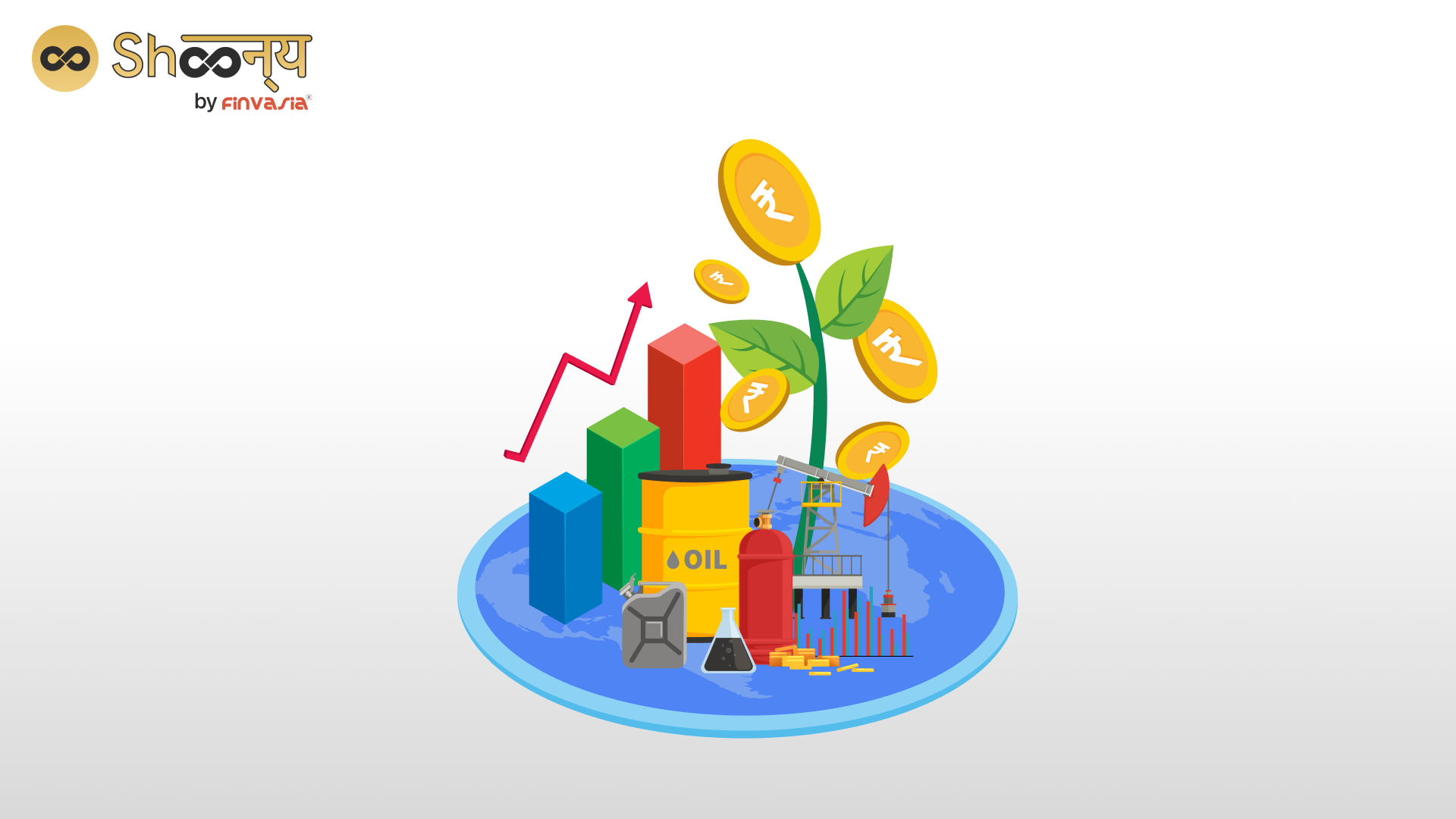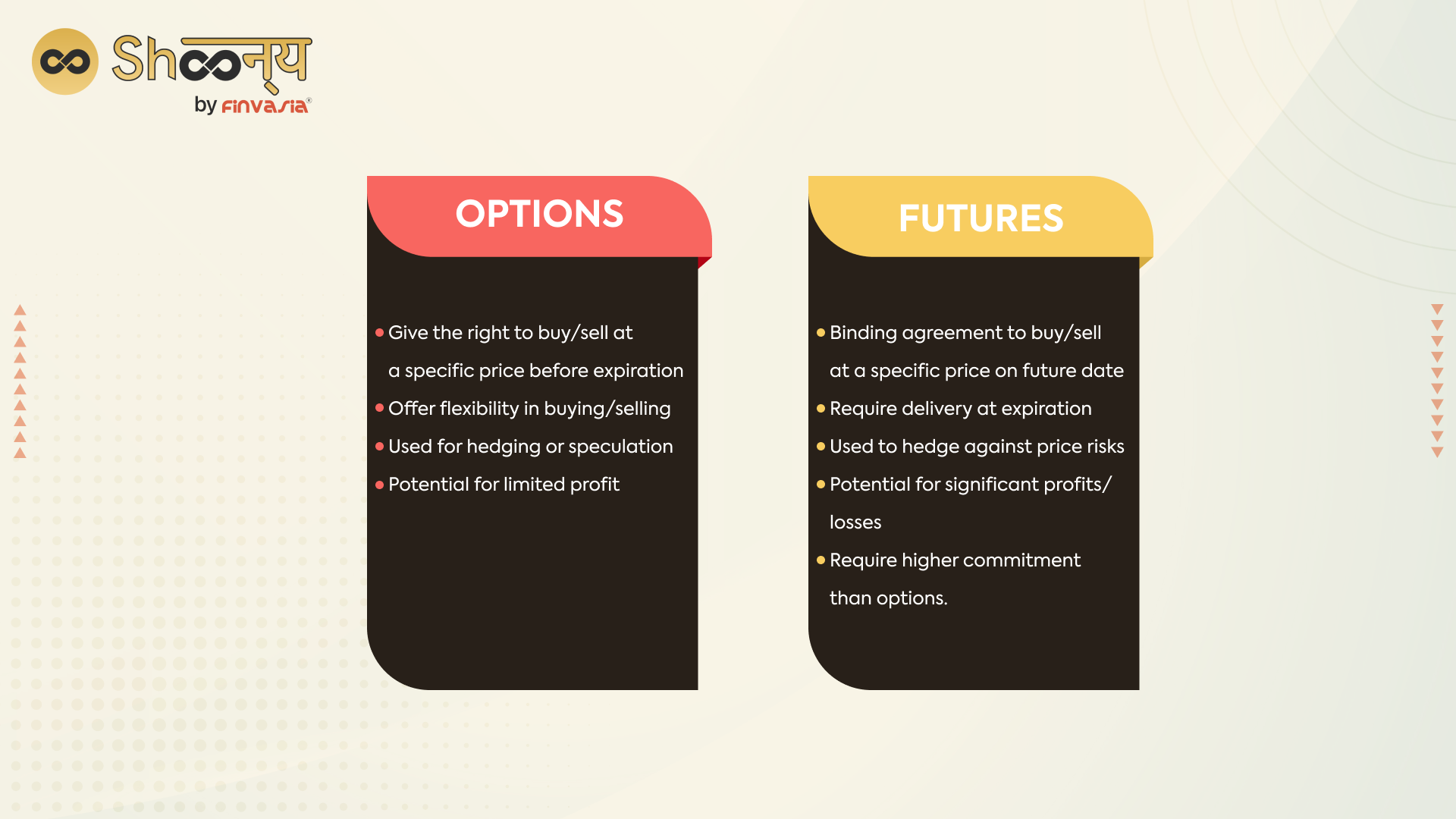Commodities Trading in India: Options, Futures & Benefits

Commodities hold a significant place in our daily lives, from essential goods to energy sources. Delve into the world of commodities trading in India, where options and futures open doors to potential gains. This guide caters to the Indian audience, offering insights into the benefits, strategies, and MCX call options.
Understanding Commodities Trading
Commodities are universal goods, interchangeable with others of the same type. They span metals (gold), energy sources (crude oil), livestock, and agriculture. Investors see commodities as a diversification tool, especially during stock market volatility.
Options and Futures: Unveiling Trading Tools
Options and futures are key commodities trading tools. Options grant you the right to buy or sell at a predetermined price, while futures involve a contract to buy or sell at a set price on a future date. Both tools offer ways to speculate on price changes without owning the underlying asset.
Options Trading in Commodities
Options trading in commodities provides investors with an attractive opportunity to speculate on price movements without owning the underlying asset. By buying call or put options, traders can profit from both rising and falling commodity prices while limiting potential losses to the premium paid for the options. This strategy offers flexibility, as traders can adapt to changing market conditions, and it’s especially valuable during volatile periods.
Check out the best broker for commodity trading in India and enjoy zero brokerage trading.
Commodity Futures Trading
Commodity futures trading involves entering into contracts to buy or sell commodities at predetermined prices on specified future dates. This enables producers and consumers to manage price risks, ensuring stability in their operations and revenue streams. It also provides opportunities for speculators to profit from price fluctuations.
Commodity Options Trading Benefits
Commodity options trading offers several benefits. It allows investors to diversify their portfolios by adding exposure to commodities. Options provide limited risk, as the potential loss is limited to the premium paid. Furthermore, options offer flexibility to implement various trading strategies, such as hedging, speculation, and income generation.
Commodity Futures Trading Benefits
Commodity futures trading offers a range of advantages. It facilitates price discovery by bringing buyers and sellers together in a transparent marketplace. Futures contracts also provide a mechanism for risk management, allowing businesses to hedge against adverse price movements. Speculators can participate to profit from anticipated price changes. Additionally, commodity futures trading contributes to overall market stability by ensuring consistent supply and demand for essential goods. It’s a vital tool for producers, consumers, and investors seeking exposure to commodities.
Strategies and Insights: Navigating the Commodity Market
Commodities trading requires strategic thinking. Market volatility, supply-demand dynamics, and global economic trends impact prices. For example, rising demand from countries like India and China can drive up commodity prices. Understanding these nuances helps formulate effective trading strategies.
Commodity Exchanges in India: MCX Call Options
In India, the Multi Commodity Exchange of India (MCX) offers a plethora of commodities. From precious metals to energy sources and agriculture, MCX is a hub for Indian investors. MCX call options provide opportunities to capitalize on price movements.
Difference between Options and Futures

Options:
- Give the holder the right, but not the obligation, to buy or sell a commodity at a specific price (the strike price) before a specified expiration date.
- Offer more flexibility in terms of buying or selling a commodity
- Used for hedging or speculative purposes
- Potential for limited profit
Futures:
- Are binding agreements between two parties to buy or sell a commodity at a specific price on a future date
- Require the buyer to take delivery of the commodity or the seller to provide delivery at the contract’s expiration.
- Often used to hedge against price risks in the commodity markets
- Potential for more significant profits or losses
- Require a higher level of commitment compared to options.
Types of Commodities Traded
Commodities are categorised into metals, energy, livestock, and agriculture. Metals like gold and silver act as safe-haven assets. Energy commodities like crude oil are influenced by global developments. Agriculture and livestock offer opportunities driven by factors like weather and population growth.
Investment Avenues: Choose Your Approach
Investing in commodities offers multiple avenues:
- Futures Contracts: Buy or sell commodities at predetermined prices, engaging in price fluctuations.
- Stocks: Invest in companies linked to specific commodities, gaining sector exposure.
- ETFs and ETNs: Exchange-traded funds and notes provide indirect commodity exposure.
- Mutual and Index Funds: Mutual funds may invest in commodity-related industries.
- Commodity Pools and Managed Futures: Pool investments for managed futures trading.
Download Shoonya — your all-in-one Commodity Trading App in India for fast, easy, and affordable trading.
In Conclusion: Embark on Your Journey
Commodities trading in India offers a gateway to diversification and potential gains. By comprehending options, futures, and various commodities, you can navigate the market with confidence. Whether you’re drawn to the stability of precious metals or the dynamism of agricultural products, commodities trading empowers Indian investors to expand their financial horizons.
FAQs: Clarifying Your Doubts
Options offer the right to buy or sell, while futures entail a contractual obligation to buy or sell at a predetermined price on a future date.
Beginners can start by learning about the market, grasping trading instruments, and practicing with virtual trading accounts.
Commodities carry risks due to unpredictable factors. Diversifying your portfolio with commodities can help manage risk.
Commodity exchanges provide platforms for transparent buying and selling of commodities through standardized contracts.
______________________________________________________________________________________
Disclaimer: Investments in the securities market are subject to market risks; read all the related documents carefully before investing.








